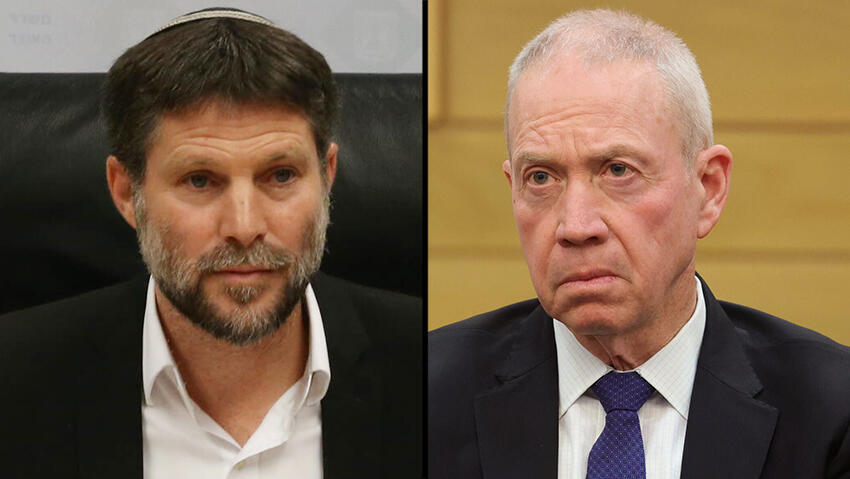In a recording of Finance Minister Bezalel Smotrich's speech at a conference last week in one of the settlements in West Bank, he revealed how the leader of the Religious Zionism party is trying to change the reality on the ground and establish government control over the West Bank instead of the military, without officially annexing.
"I tell you, it's super-dramatic," Smotrich is heard saying in his speech. "Such changes change the system." Smotrich plans to strip the IDF of its authority in the West Bank and transfer it to civilian bodies under his jurisdiction. Parts of his plan have already been gradually introduced over the past 18 months, and some authorities have already been transferred to civilian bodies. These changes are part of Smotrich's plan to prevent the establishment of a Palestinian state and de-facto annexing the West Bank.
"We've created a separate civilian system," Smotrich is heard saying in the recording. He said that to deflect international criticism, the government allowed the Defense Ministry to remain involved in the process to create the appearance that the military is still in charge. "It will be easier to accept this in the international and legal context," Smotrich said. "So that they won't say we're annexing here."
The conference was attended by settlement leaders as well as Minister of National Missions of Israel, Orit Strook. Both Smotrich and Strook's offices fund about 63 unapproved settlements in the hopes of getting approval for their establishment. These settlements will pose a challenge to the establishment of a Palestinian state. In the recording, Smotrich confirmed that Prime Minister Benjamin Netanyahu is aware of the details of the plan, much of which was part of the coalition agreement allowing the prime minister to remain in power. "Netanyahu is with us all the way," the Finance Minister boasted in his speech.
The Cabinet decision from February 2023 was also presented at the conference, stipulating that certain settlements would be defined as "processed settlements." In these settlements, the government would invest resources, build infrastructure, and prevent demolitions of illegal construction, despite never completing due process and receiving approval from the state.
Despite Smotrich's plan, the government's official position is that the status of the West Bank remains open to negotiation between Israeli and Palestinian leaders. The Supreme Court previously determined that Israel's control over the West Bank amounts to temporary military control under the supervision of the IDF, not a permanent civilian annexation managed by Israeli state employees.
After a long struggle for power in the West Bank against Defense Minister Yoav Gallant, Smotrich received jurisdiction and appointed his deputy head of civil administration, Hillel Rot. Rot took responsibility for some civil services such as planning, land, enforcement, transportation, and environmental protection in the West Bank answering to Smotrich, and not BG Hisham Ibrahim, the current head of civil administration.
In addition, all legal authorities were transferred to Smotrich's legal adviser in the Defense Ministry, and the minister also allocated 85 million shekels for improving security and another 7 billion shekels for improving and constructing roads in the West Bank, set to drive population growth in the area.
The changes Smotrich is making stand in stark contrast to the Shin Bet's position and the IDF's Central Command, explaining that every decision in the West Bank has security implications that could affect the country's security, and any change from the political echelon to establish farms and unauthorized settlements could lead to an escalation.




